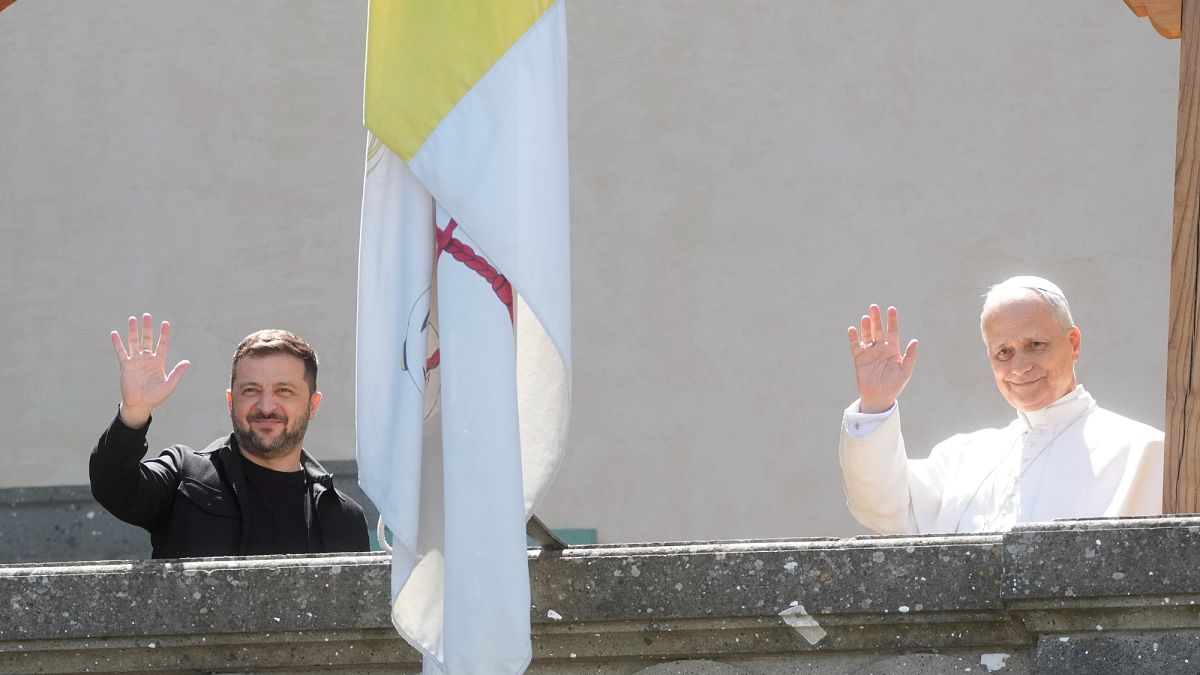

In a world seeking harmony amidst complex challenges, recent diplomatic actions and decisions highlight a collective desire for peace and understanding. Key discussions have taken place among global leaders and influential figures, signaling hope for peaceful resolutions in conflicted regions.
Ukrainian President Volodymyr Zelenskyy, in a meaningful conversation with Pope Leo XIV, proposed the Vatican as a potential venue for future peace talks between Ukraine and Russia. This suggestion comes ahead of the Ukraine Recovery Conference in Rome, emphasizing the urgency of finding a lasting and just peace. The meeting reflects both leaders’ commitment to dialogue and reconciliation, offering a serene platform like the Vatican to facilitate such significant discussions.
Meanwhile, in a significant development within Turkey’s conflict with the Kurdistan Workers’ Party (PKK), the jailed leader Abdullah Ocalan has urged for the disarmament of Kurdish militants. In a poignant public appearance, the first since 1999, Ocalan declared that the armed struggle against Turkey should conclude, advocating for peaceful ways to address grievances. This plea is timed with an upcoming symbolic peace ceremony, illustrating a potential turning point in the decades-long conflict.
On another front, in a gesture of humanitarian diplomacy, South Korea recently repatriated six North Koreans who accidentally drifted into its waters. Recognizing their desire to return, South Korea facilitated their safe cross-border transit, respecting their wishes and maintaining delicate inter-Korean relations. This act not only underscores the importance of compassion but also the intricate balance in managing interactions on the Korean Peninsula.
In a strategic diplomatic reshuffle, President Zelenskyy has decided to replace Ukraine’s envoy to the United States. Oksana Markarova will be recalled after four years of commendable service, as part of a move aimed at strengthening ties with the current U.S. administration. Andrii Sybiha, Ukraine’s foreign minister, praised Markarova for her effectiveness and charisma, underscoring the nuances involved in fostering strong international alliances.
Adding another dimension to the global diplomatic landscape, Pope Leo XIV has offered to mediate discussions with Russia, striving to contribute to the resolution of ongoing hostilities in Ukraine. The Vatican, known for its neutral stance, could provide a peaceful setting for dialogue, reinforcing the role of religious leadership in peacebuilding. This initiative gains relevance as international incidents, such as the EU’s dispute with China over the alleged targeting of a German aircraft, present additional global security challenges, highlighting the complexity of current international relations.
Through these thoughtful actions and announcements, a sincere intention for peace and collaboration is evident. As initiatives unfold, they provide a gentle reminder of the potential for reconciliation, understanding, and hope in a world eagerly anticipating harmonious coexistence.
Source: {link}
